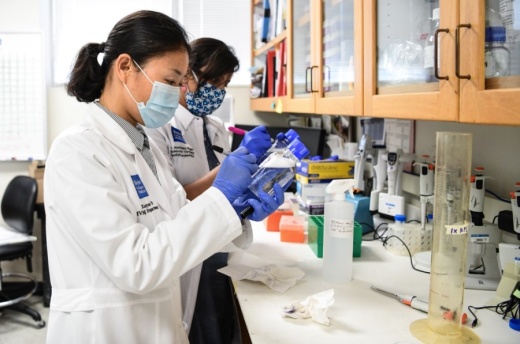The study is part of a nationwide initiative called the Community Prevalence of SARS-CoV-2 study, or COMPASS, led by the National Institute of Allergy and Infectious Diseases, or NIAID, to determine how COVID-19 is transmitted in communities.
The study will collect samples from 70,000 individuals nationwide, with 4,000 of those coming from the Houston area, according to the news release.
Participants will be given a free COVID-19 nasal swab test and will be asked to provide a blood sample for an antibody test to determine if they were previously infected.
COVID-19 test results will be returned within 48 hours. Participants will also complete a short survey answering questions about demographics and their personal experiences with COVID-19 mitigation measures.
“Learning how many people have already been infected with COVID-19 will allow us to understand the potential risks that contribute to further development of the pandemic and the impact that vaccination and improvements in therapy will have on our populations,” said Dr. Chris Amos, principal investigator of the Baylor study, director of Baylor’s Institute for Clinical and Translational Research and associate director of population and quantitative science at the Dan L Duncan Comprehensive Cancer Center at Baylor, in the news release.
Researchers will also study demographic and social risk factors and medical comorbidities associated with infection. Data collected in the study will be used to inform mathematical models of disease progression and projections of future disease risk.
Participants will be recruited at community gathering spots, such as grocery stores, churches and parks as well as nursing homes and health care centers, in order to ensure selected individuals are similar to their community.
The study is part of a $20 million initiative by the National Institutes of Health to understand the prevalence of COVID-19 infection. Results will allow researchers to estimate how many members of the Houston population have already been infected by COVID-19 and to determine the current burden of COVID-19 infection.
For more information on the study, email Amos at [email protected].





